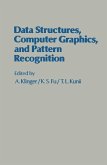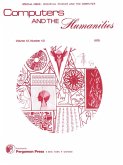Comprised of 16 chapters, this volume begins with an overview of some of the limitations of surveys, followed by an annotated bibliography on frames from which the probability sample is selected. The reader is then introduced to sample designs and methods for collecting data over space and time; response effects to behavior and attitude questions; and how to develop and use error profiles. Subsequent chapters focus on principles and methods for handling outliers in data sets; influence functions, outlier detection, and data editing; and application of pattern recognition techniques to data analysis. The use of exploratory data analysis as an aid in modeling and statistical forecasting is also described.
This monograph is likely to be of primary benefit to students taking a general course in survey sampling techniques, and to individuals and groups who deal with large data collection systems and are constantly seeking ways to improve the overall quality of their data.
Dieser Download kann aus rechtlichen Gründen nur mit Rechnungsadresse in A, B, BG, CY, CZ, D, DK, EW, E, FIN, F, GR, HR, H, IRL, I, LT, L, LR, M, NL, PL, P, R, S, SLO, SK ausgeliefert werden.









